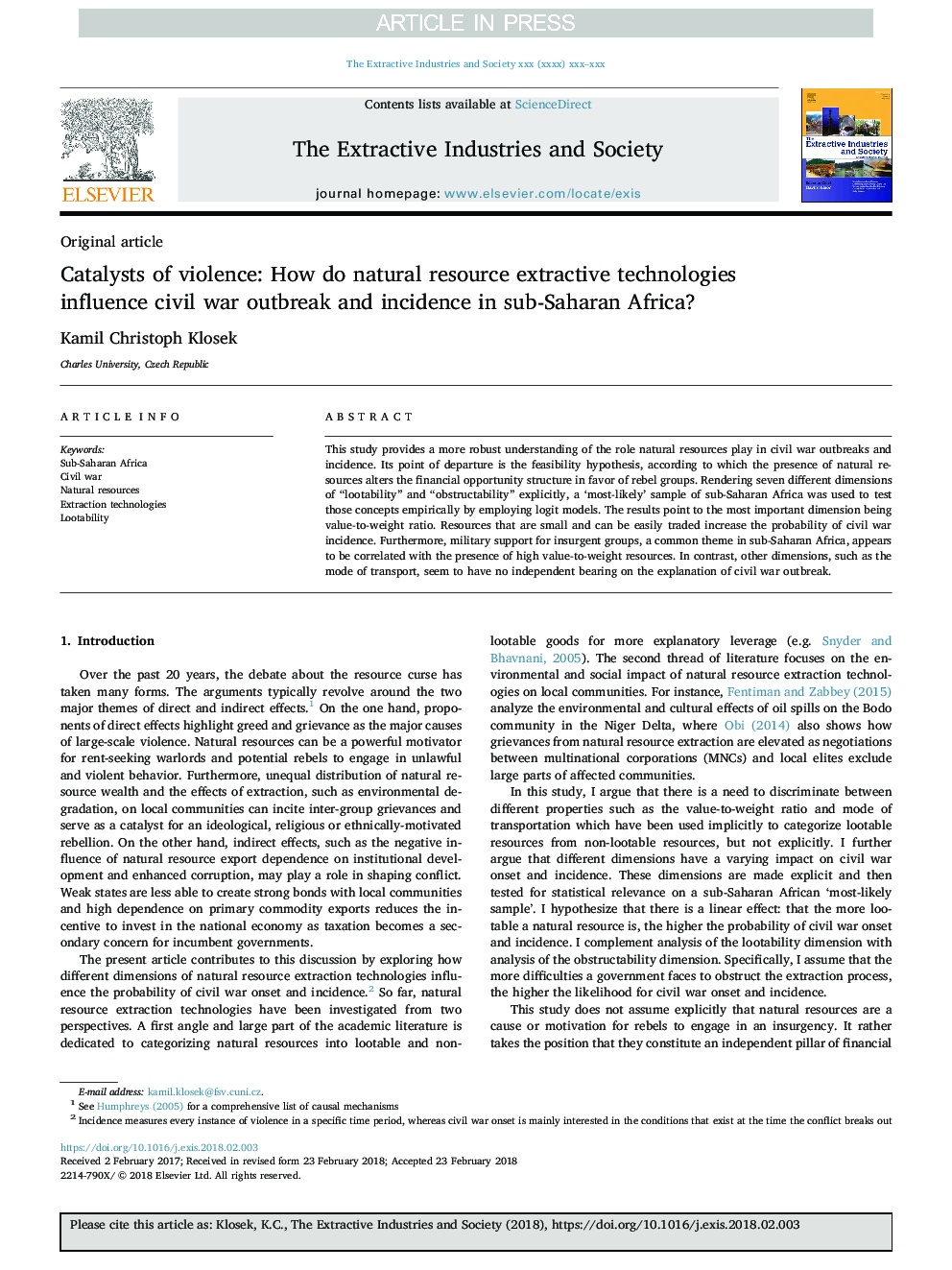| Article ID | Journal | Published Year | Pages | File Type |
|---|---|---|---|---|
| 7454240 | The Extractive Industries and Society | 2018 | 10 Pages |
Abstract
This study provides a more robust understanding of the role natural resources play in civil war outbreaks and incidence. Its point of departure is the feasibility hypothesis, according to which the presence of natural resources alters the financial opportunity structure in favor of rebel groups. Rendering seven different dimensions of “lootability” and “obstructability” explicitly, a 'most-likely' sample of sub-Saharan Africa was used to test those concepts empirically by employing logit models. The results point to the most important dimension being value-to-weight ratio. Resources that are small and can be easily traded increase the probability of civil war incidence. Furthermore, military support for insurgent groups, a common theme in sub-Saharan Africa, appears to be correlated with the presence of high value-to-weight resources. In contrast, other dimensions, such as the mode of transport, seem to have no independent bearing on the explanation of civil war outbreak.
Related Topics
Life Sciences
Environmental Science
Management, Monitoring, Policy and Law
Authors
Kamil Christoph Klosek,
